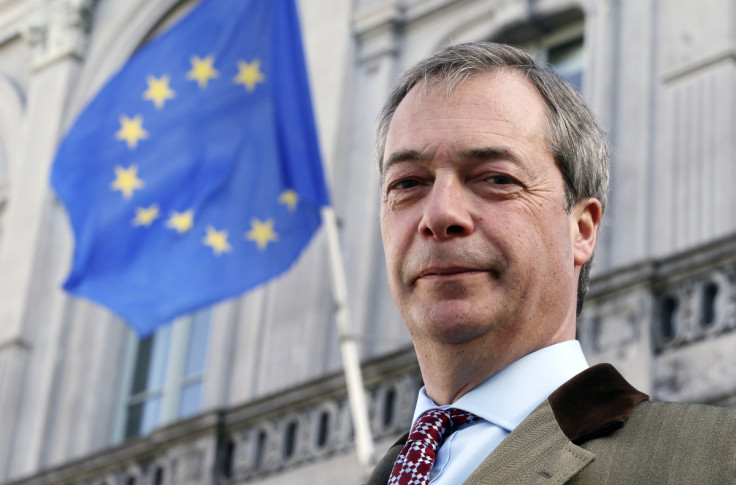Attacks on Teflon Man Nigel Farage Get Serious over EU Expenses Claims

Ukip's Nigel Farage has become the new Teflon man of British politics. Nothing that gets thrown at him sticks. So far.
Previous claims by a party official that he had sex with a Latvian woman seven times in one night were not only laughed off by Farage as hilariously untrue, but become part of his after-dinner speeches.
Recent allegations he had an affair with his former spokeswoman, Annabelle Fuller, were also brushed aside with Farage's trademark cheeky-chappie grin.
Even his wife is said to have described the "freak show" of the party's Mayfair headquarters. And the well-worn Cameron description of his party as a group of "fruitcakes, loonies and closet racists" has long lost it's impact.
All of these developments have been rejected with a shrug of the Farage shoulders and the suggestion he was not that bothered as it was all part of a plot by a frightened establishment to "nobble" him.
And none of them appeared to do anything other than endear him to those voters fed-up with the dull, tainted "suits" in Westminster.
I have been here since 1999 and I said on day one that I would use the money and wherewithal provided by the European Union to fight against Britain's membership of the EU, but within the rules of the Union.
But now it seems to have got serious with the suggestion Farage has syphoned off EU funds into the Cayman Islands, and his angry threats to take legal action against the Times newspaper for publishing the allegations.
Although the source of the Times story remained anonymous, many observers believe they know who it is and Farage told the BBC's Today programme the newspaper had revealed the source to him.
He said the paper had: "abused the witness testimony of a woman who was a convicted fraudster" and, when challenged, added: "They (the Times) wrote to me yesterday and told me.
"She is serving a suspended sentence for fraud. I barely know this individual and I have been accused on the front page of the Times of syphoning off EU money to the Cayman islands."
Describing the suggestion as "completely and utterly outrageous" he confirmed he was taking legal advice about possible action against the newspaper.
He even likened the issue to the Times' famous treatment of Tory Lord Ashcroft a decade ago which ended up with the paper settling out of court.
Farage has taken this matter so seriously for a number of reason, not the least that he believes accusations of fraud are on a different level to previous claims. But also because he is eager to be seen as different from those establishment figures in Westminster brought low by the on-going expense scandal. That is his unique selling point.
There is an irony here, of course, because Farage is opposed to the very notion of EU taxpayers financing the running and upkeep of the European parliament and the rest of the Union's institutions.
The fact that many of the parliament's expenses are not subject to audit or require receipts has also been a long bone of contention.
But Farage's defence is always that he has taken the cash in order to finance his anti-EU activities.
"I have been here since 1999 and I said on day one that I would use the money and wherewithal provided by the European Union to fight against Britain's membership of the EU, but within the rules of the Union."
The ability to use the cash for that purpose was one of the biggest advantages of being in the parliament, he said.
So far, his threat to take legal action against the Times has remained just that. And it would be a big step to take, inviting even greater scrutiny of his activities.
But what many in Westminster believe is that, while it is perfectly legitimate for the media to scrutinise a politician's personal and financial dealings, it is Ukip's broader policies that need the same level of probing.
The great fear is that Farage's repeated claim that all these things amount to an establishment plot to "nobble" him will strike a chord with voters and may actually boost his support while distracting attention away from his political manifesto.
© Copyright IBTimes 2025. All rights reserved.





















